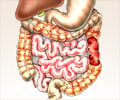Frequently Asked Questions
1. Which Doctor to go to when experiencing stomach pain?If you're experiencing stomach pain, it's advisable to consult a general practitioner (GP) or a primary care doctor initially. They may refer you to a gastroenterologist for specialized care.
2. What are the quadrants of the abdomen?
The abdomen is divided into four quadrants: right upper, left upper, right lower, and left lower, each housing different organs and structures.
3. Why do I have belly button pain?
Pain around the belly button could be due to various reasons, such as infection, hernia, or gastrointestinal issues. Sharp pain around the belly button may be due to reasons like infection, indigestion, constipation, and pregnancy. Some are more serious, such as gallstones, appendicitis, or pancreatitis. Consulting with a doctor is essential for a proper evaluation and diagnosis.
4. What causes left upper abdominal pain?
Upper left abdominal pain can result from various factors, such as spleen issues (enlargement due to infections or conditions like liver disease), tumors (stomach, kidney, upper colon, or pancreas cancers), and pancreatitis. Additional causes include gas, indigestion, and appendicitis.
5. What does LLQ pain indicate?
Left lower quadrant (LLQ) pain means having pain in the lower left part of your belly. The most common reason for LLQ pain in adults is diverticulitis in the sigmoid colon, which may cause a fever and changes in bowel habits. Other reasons for LLQ pain can include kidney stones, ectopic pregnancy, irritable bowel syndrome, inflammatory bowel disease, hernias, endometriosis, and testicular torsion.
6. Does Sprite help with nausea?
Sprite can be helpful in alleviating nausea because it can replenish lost glucose caused by dehydration. Dehydration, especially in children, can lead to low blood sugar or hypoglycemia. By replacing glucose, Sprite can aid in reducing nausea and preventing other symptoms associated with low blood sugar.
7. What could be the cause of stabbing pain in the stomach?
Some abdominal pain may result from indigestion, but in other cases, a doctor's diagnosis may be necessary to identify the source. Causes of sharp stomach pains can include gas, stomach viruses, appendicitis, gallstones, irritable bowel syndrome, kidney stones, ovarian cysts, and various other conditions.
8. Why do I have stomach pain at night?
Possible reasons for nighttime stomach pain include gas, irritable bowel syndrome (IBS), stomach ulcers, diverticulitis, acid reflux, and gallstones.
It is recommended to consult your healthcare provider if you experience:
- Abdominal discomfort lasting a week or more
- Abdominal pain that doesn't improve within 24 to 48 hours
- Persistent bloating for over 2 days
- Burning sensation during urination or frequent urination
Clear liquids like water, herbal tea, or electrolyte drinks can help soothe an upset stomach.
10. Why do I experience stomach discomfort after eating?
Discomfort after eating may be due to overeating, indigestion, or dyspepsia, which refers to sensations such as belly pain and a sense of fullness shortly after commencing a meal. Rather than constituting a distinct disease, indigestion encompasses particular symptoms and can also serve as an indicator of various other digestive disorders.
11. What causes a burning sensation in the lower abdomen?
A burning sensation in the lower abdomen may be attributed to various factors, including gastrointestinal issues like gastritis, acid reflux, or inflammation. Gynecological conditions, urinary tract infections, or muscle strain can also contribute. If persistent or severe, consulting a healthcare professional is advised for proper evaluation and diagnosis.
12. Why do I have gnawing stomach pain?
A gnawing sensation in your stomach may be attributed to hunger pangs, a natural response to an empty stomach, and can also be triggered by sleep deprivation. Other potential causes of gnawing stomach pain include:
Gastritis: Characterized by a gnawing or burning ache in the upper abdomen, which may improve or worsen with eating.
Stomach Ulcer: Typically manifests as a burning or gnawing pain in the abdomen. It's important to note that not all stomach ulcers cause pain.
13. What could cause dull pain in the lower left abdomen?
Dull pain in the lower left abdomen may be related to the colon, ovaries, or other structures. Seeking medical attention is advisable for a comprehensive examination and accurate diagnosis.
14. How can I manage a sensitive stomach?
A sensitive stomach, a term used informally, refers to a stomach that easily gets upset. Managing a sensitive stomach involves several tips:
- Eat slowly
- Chew your food well
- Eat smaller, more frequent meals
- Drink plenty of fluids
- Avoid late-night meals and snacks
- Eat bland foods
- Avoid trigger foods
- Make sure your diet includes soluble fiber





















